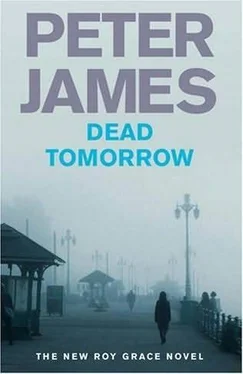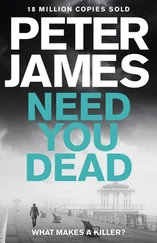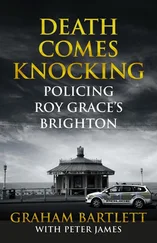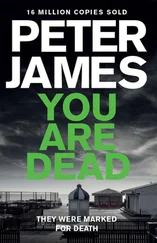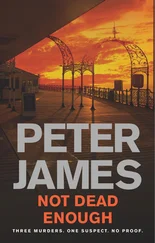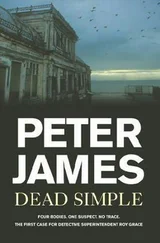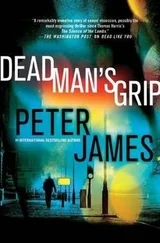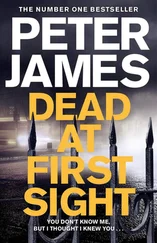‘Those wheels?’ he said.
She shook her head. ‘No,’ she mumbled, and windmilled her right hand, as if trying to tease a thought out from inside her head. ‘It’s a sort of Facebook thing. To get around. They’re sort of virtual.’
Her eyes closed, as if she was exhausted from the effort of speaking.
He bent down and opened his medical bag. At that moment Lynn came back in with the tea and a digestive biscuit lying in the saucer.
He thanked her, then turned his attention to Caitlin.
‘I just want to take your temperature and blood pressure, is that OK?’
Still with her eyes shut she nodded, then whispered, ‘Whatever.’
*
Ten minutes later he walked back downstairs, followed by Lynn. They went into the kitchen and sat down at the table. She knew what he was going to say before he opened his mouth, just from the worried set of his face.
‘Lynn, I’m very worried about her. She’s extremely ill.’
Feeling her eyes watering, Lynn was tempted, desperately tempted, to open up and confide in him about what she was doing. But she could not predict how he would react. She knew he was a man of the deepest integrity and that, whether or not he believed in the course she was taking, he could never condone it. So she just nodded, silently and bleakly.
‘Yes,’ she gulped, her heart heaving. ‘I know.’
‘She needs to be back in hospital. Shall I phone for an ambulance?’
‘Ross,’ she blurted. ‘Look – I…’ Then she shook her head and sank her face into her hands, trying desperately to think clearly. ‘Oh, God, Ross, I’m at my wits’ end.’
‘Lynn,’ he said gently. ‘I know you think you can look after her here, but the poor girl is in a lot of discomfort, quite apart from danger. She’s raw all over her body from scratching. She has a high temperature She’s going downhill very quickly. I’m shocked how she’s deteriorated since I last saw her. If you want the brutal truth, she’s not going to survive here, like this. I spoke to Dr Granger about her earlier. A transplant is her only option and she needs one very urgently, before she gets too weak.’
‘You want her back in the Royal?’
‘Yes. Right away. Tonight, really.’
‘Have you ever been there, Ross?’
‘Not for some years, no.’
‘The place is a nightmare. It’s not their fault. There are some good people there. It’s the system. The National Health management. The government. I don’t know where the blame lies – but it’s a living hell to be there. It’s easy for you to say she should be in hospital, but just what does that mean? Sticking her in a mixed ward, with confused old people who try to climb into bed with her in the middle of the night? Where you have to fight to find a wheelchair to move her around? Where I’m not supposed to be with her, to comfort her, after eight-thirty at night?’
‘Lynn, they don’t put children into adult wards.’
‘They have done it. When they were overcrowded.’
‘I’m sure we can see that it doesn’t happen again.’
‘I’m so damn scared for her, Ross.’
‘She’ll get a transplant quickly now.’
‘Are you sure? Are you really sure, Ross? Do you know how the system works?’
‘Dr Granger will make sure of it.’
She shook her head. ‘I’m sure Dr Granger means well, but he doesn’t know his way around their bloody system any more than you do. They meet once a week, on Wednesdays, to decide who gets a transplant that week – assuming a matching liver becomes available. Well, it’s now Thursday night, so the earliest we’d get a green light would be next Wednesday. Almost a whole week. Is she going to survive another week?’
‘She won’t survive here,’ he said bluntly.
She reached out and gripped his hand, and through a flood of tears she said, ‘She has a better chance here, Ross, believe me. She does. Just don’t ask. Please just don’t sodding ask.’
‘What do you mean by that, Lynn?’
She was silent for a moment. Then she said, ‘I’ll get her back to the Royal the instant you have a liver for her. Until then, she stays here. That’s what I mean. OK?’
‘I’ll do what I can,’ he said. ‘That’s a promise.’
‘I know you will. Just so long as you understand, I’m her mother, and I will do what I can.’
Fat snowflakes were falling as Ian Tilling parked his clapped-out Opel Kadett on an empty stretch of street, just a couple of hundred yards from the front entrance of the Gara de Nord. As usual when he turned off the ignition, the engine rattled on, continuing to turn over, coughing and firing for several seconds before finally quitting.
He climbed out, along with Andreea and Ileana, and slammed the door. He liked Ileana. She was a committed carer, totally dedicated to helping the deprived of Bucharest. She had a pretty face, even with her predatory, aquiline nose, but, almost as if to deliberately deter admirers, she kept her fair hair fiercely combed back into a matronly bun, wore unflattering glasses and dressed in functional rather than feminine clothes.
On more than one occasion when they had worked together, he had thought about how stunning she could look with a makeover. He had also been amused by how persistently the randy Subcomisar Radu Constantinescu had attempted to get her to come for a drink with him, and how adroitly she had rebuffed him on each occasion.
Sometimes there were prostitutes out along the street here, but to his disappointment there were none tonight. This was where they had been hoping to find the girl called Raluca. With Ileana leading, they walked up the steps in the icy night air, and into the cavernous, gloomy interior of Bucharest’s mainline railway terminus. Almost immediately, Ian noticed a gaggle of street kids over to their left. A hundred yards further on, beneath the feeble sodium glow of the overhead bulbs, a small group of policemen stood smoking and sharing a joke.
‘Those are friends of Raluca, over there,’ Ileana said to him quietly, jerking her gloved thumb at the group.
‘OK. Let’s take them something.’
Followed by the two girls, he walked across the deserted concourse, past the closed METROPOL café, and an old, bearded man, in a woollen hat, ragged clothes and gumboots, swigging a bottle of spirits, who had been there, sitting on the ground with his back against the wall, in this same location, in those same clothes, for as long as he could remember. He sidestepped and dropped a five lei note on to the small group of coins spread out in front of the man and received a cheery wave for his troubles.
In the echoing silence, Tilling heard the clanking of a train’s wheels, steadily picking up speed, departing from a nearby platform, and his eyes mechanically flicked up to the departures and arrivals board. The confectionery stall was about to close for the night, but Ian persuaded its surly proprietor to allow him to purchase an armful of chocolate bars, biscuits, crisps and soft drinks, which they then lugged over, in several bulging plastic bags, to the street kids.
He knew a few of them. A tall, thin boy of about nineteen, called Tavian, wearing his blue woollen hat with ear flaps, and military camouflage jacket over a windcheater and several layers beneath. He held a sleeping baby, wrapped up tightly in a blanket. Tavian always smiled – whether it was his nature or because he was permanently smashed on Aurolac, Tilling did not know, but suspected the latter.
‘I have some presents for you!’ the former English police officer said, in Romanian, holding out the bags.
The group grabbed them, jostling each other to peer inside, then digging into the contents. No one thanked him.
Читать дальше
